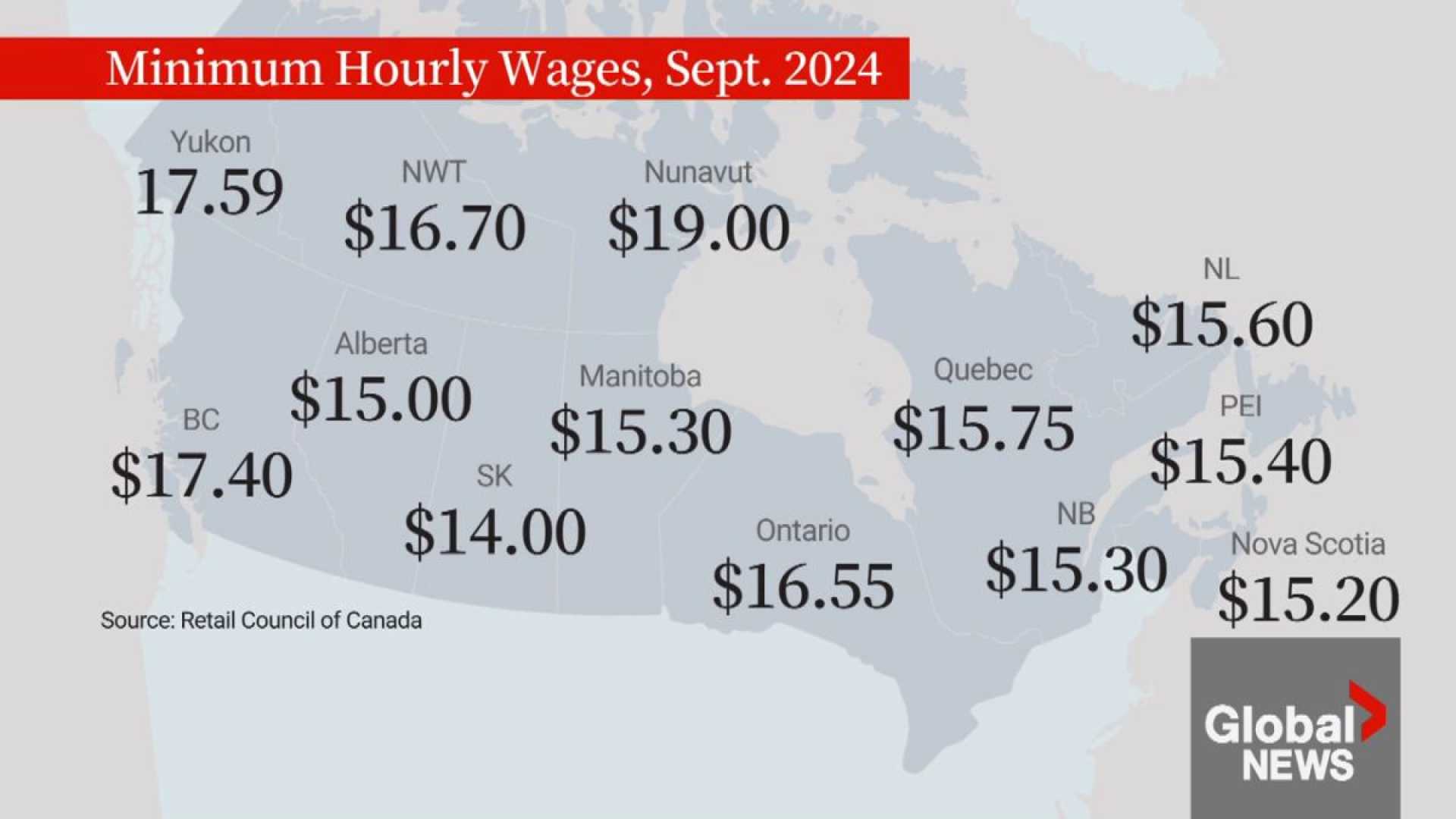News
Provinces Increase Minimum Wages as Alberta Remains Stagnant

As of October 1, 2024, four Canadian provinces have increased their minimum wage rates, reflecting ongoing adjustments tied to inflation. Ontario, Manitoba, Prince Edward Island, and Saskatchewan are seeing changes in their hourly pay for workers, whereas Alberta‘s minimum wage remains unchanged since 2018. This has left Alberta tied with Saskatchewan for the lowest minimum wage in the country.
In Ontario, the minimum wage is rising by 65 cents, reaching $17.20 per hour. This increase is primarily driven by inflation-related adjustments. Similarly, Manitoba’s rate goes up by 50 cents to $15.80, also following an inflation-linked formula. Meanwhile, Prince Edward Island has implemented a 60-cent increase, bringing its rate to $16, following a previous hike earlier this year.
Saskatchewan’s adjustment saw the minimum wage increase by one dollar to $15, aligning it with Alberta. Alberta, once known for having the highest minimum wage in Canada, now finds itself among those with the lowest wage floors. According to the policies implemented by the previous Alberta NDP government, the minimum wage was set at $15 per hour on October 1, 2018. Following the rise of the UCP to power in 2019, Alberta also introduced a “job creation student wage,” allowing employers to pay under-18 workers $13 per hour for a maximum of 28 hours per week during the academic season.
A report highlighted that the previous wage hikes in Alberta led to a loss of approximately 23,000 jobs between 2015-2018 due to increased labor costs faced by businesses. The Minimum Wage Expert Panel, when convened, advised against any changes to Alberta’s minimum wage structure at the time. In response to the unchanged wage, Gil McGowan, President of the Alberta Federation of Labour, has been vocal about the economic struggles of minimum wage earners in the province.
McGowan emphasized the impact of high inflation on basic living costs, stating, “Prices for housing and food continue to skyrocket in this province, and Alberta minimum-wage workers need a raise.” He argued that a stagnant wage equates to a real pay cut considering the inflation over the past six years. “If the Alberta minimum wage had kept pace with inflation, it would be $19 per hour today,” McGowan added, highlighting the disparity between existing wages and the calculated living wage needed for a modest lifestyle in various Alberta communities.
The living wage required to meet fundamental expenses hovers around $20 per hour across numerous Alberta towns and cities, with Calgary and Fort McMurray residents needing about $24 per hour. Other areas such as Edmonton, Lethbridge, and Lac La Biche require between $21 and $22 hourly to meet living costs.












